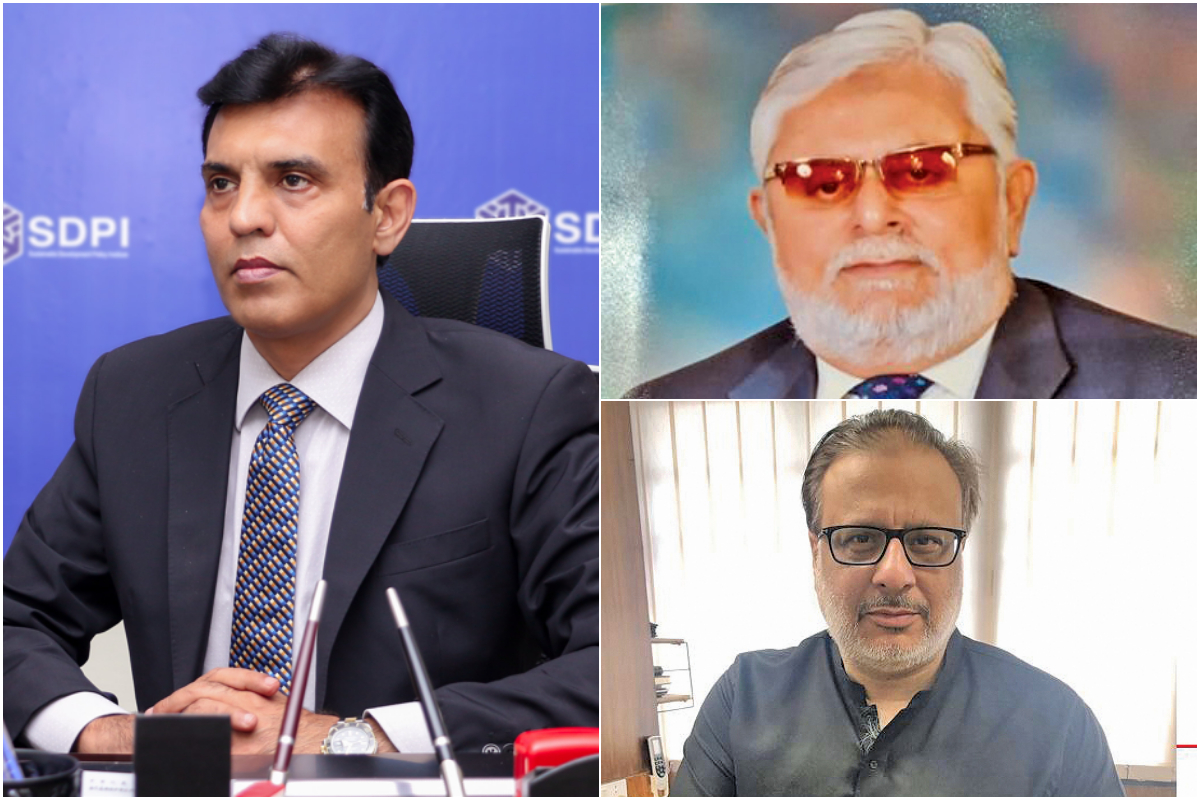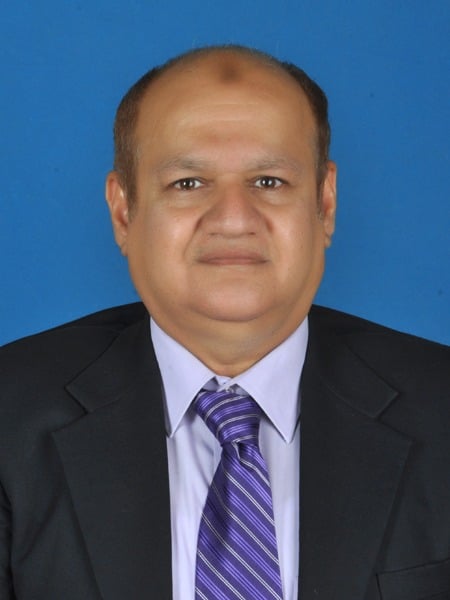
Pakistan’s political, economic scenarios look gloomy in 2023
Islamabad: Pakistan’s overall political and economic scenarios look gloomy and depressing, as we enter the New Year. The Pakistan Muslim League (PML-N)-led coalition government’s lack of political credibility and confrontation with the only opposition party, the Pakistan Tehreek-e-Insaf (PTI), further aggravated the political and economic crises in the country.
Though Prime Minister Shehbaz Sharif and Finance Minister Ishaq Dar repeatedly claimed that the country will not default, all the stakeholders and experts are portraying a bleak picture.
The outgoing year was somewhat a nightmare for the country. Political turmoil, worsening economic crisis and the return of terrorism made the life of the common man miserable.
The perpetual state of confrontation among the political forces and the virtual collapse of state institutions have pushed the country close to anarchy. With the prospect of sovereign default staring us in the face, the outlook for the economy seems extremely grim.
Pakistan faces daunting internal and external challenges ahead and can we show resilience to overcome these prevailing crises is somewhat a biggest challenge for us, as a nation.

Zubair Motiwala, chairman of the Businessmen Group and a leading industrialist of the country, said that the government is making no effort to overcome political and economic crises.
“They are just lingering on without any purpose,” he said, adding that though the country faced a number of economic crises in the past too, this time, higher energy prices, balance of payments crisis, the International Monetary Fund (IMF) conditions and, most importantly, the catastrophe of floods have shattered the domestic market.
“Everyone talks about exports but it constitute only 8 per cent of our GDP, whereas the remaining 92 per cent of the goods produced in the country have been consumed by the domestic market, which have lost almost 50 per cent of its purchasing power,” he said.
According to Motiwala, the floods have damaged around 50 per cent of the agriculture output, which has not only deprived the farmers from their livelihood but also increased poverty and skyrocketed the inflation.
The fractious coalition does not seem to have the capability to take the country out of its difficulties. Its failure to take rational decisions has deepened the economic crisis. The internal discord has also undermined its ability to improve.
“The government has no control on the exchange rate regime. The importers and now even the exporters are facing enormous difficulties in opening their letters of credit (LCs) and one of the main reasons for a decline in exports is the shortage of raw materials,” he remarked.
Motiwala said that he was part of the committee, which was formed by the central bank to resolve the problems being faced by the importers, but their recommendations were never implemented.
“The Ministry of Finance has clearly instructed the State Bank of Pakistan to maintain its foreign exchange reserves at $7 billion and that these should not go below this level at any cost.”
“I don’t think this situation can be prolonged and I foresee an interim national government consisting of technocrats and maybe one or two representatives of the political parties may be formed to settle this economic chaos,” he said.
For Motiwala, in the prevailing situation, it is unlikely that free and fair elections could be held in a peaceful manner.
“To bring political and economic stability in the country, this interim set up may take at least a year or so,” he said. However, in the first quarter of 2023, the exports will pick up momentum, which will ease off the pressure on the exchange rate because of a decline in the international energy prices.
“Being an optimistic person and firm believer of the economic fundamentals, I know we will bounce back and show resilience to revive the economy like we did in the past,” he commented.

Dr Abid Qaiyum Suleri, senior economist and executive director of the Sustainable Development Policy Institute (SDPI), said that political stability through early elections could be the key to overcoming the prevailing economic crisis.
Apart from the progress on the IMF program, climate change and the foreign policy will decide the economic fate of the country.
“Massive floods have created severe food shortages in the country. If any unpredictable heatwave or floods again hit the country, then it could create serious threat to our food security,” he said.
The geopolitical situation and the foreign policy of the government also play a pivotal role in setting the economic direction of the country.
“After the Russia-Ukraine war, new alignments have been formed on the global front as Russia, China and Saudi Arabia are getting closer to establish a new block, whereas the US and the European Union were already united. Now, Pakistan is facing a tricky situation and it cannot remain impartial or neutral for long,” he noted.
“The fate of the IMF programme and the funding from the multilateral agencies such as the World Bank, depends on our relationship with the US and its allies because they hold the strings of these institutions,” he added.
However, Dr Suleri said that stability in the region depends on the relationship with Russia and China. Russia could meet Pakistan’s energy needs but it will take some time.
Regarding the China-Pakistan Economic Corridor (CPEC), Dr Suleri said that, unfortunately, it is a non-starter and hardly generated any economic growth or significant number of jobs so far.
“This Russia-Ukraine conflict had already damaged the developing economies like us but if it prolonged and, God forbids, Russia in sheer frustration exercise its nuclear option, what we will do, because abstaining from any UN resolution will not be an option then, so it is necessary that we will define parameters of our foreign policy on certain principles,” he added.

Asif Inam, chairman of the All Pakistan Textile Mills Association (Aptma), said that after two years of robust growth, the textile sector is going through a disastrous phase because of the shortage of cotton bales and higher energy prices.
“We need 14 million bales but, because of the floods, the total cotton output is mere five million bales. The government, instead of helping us, is creating problems by not providing dollars to the textile exporters to open LCs for cotton and other raw materials,” he lamented.
The sales tax refunds of over Rs500 billion have also been stuck up with the Federal Board of Revenue (FBR) and that is why Aptma is demanding a zero-rating regime so the exporters will not be short of the working capital.
“Because of the apathy and non-serious attitude of the government, around 60 per cent of the textile units of the country have suspended their operations, he said and warned that if remedial measures would not be taken soon, then January onwards the textile exports may decline by $1 billion on a monthly basis and may end the financial year at $23 to $24 billion, which will be $10 billion less then what we achieved last year.
“Alone in the first 16 days of December, the textile exports declined 30 per cent,” he added.
According to him, because of huge investment of over $6 billion made in the upgradation of the textile sector, there is a possibility that the export orders might come soon, as the textile exports from Bangladesh are also picking up, which is a good omen.
There is a little hope of Pakistan emerging out of, arguably, its worst economic crisis in recent times under the current financial team. At stake is the internal stability and national security of a nuclear-armed state. Stabilisation of the economy is going to be the biggest challenge for the country in the coming year.
While there is a little likelihood of early elections, the term of the present National Assembly will end in August 2023. Some eight months are left for the polls but continuing confrontation among the political forces will make it extremely difficult to hold free and fair elections.
The ongoing political battle in Punjab has also vitiated the atmosphere. Dissolution of the Punjab and Khyber-Pakhtunkhwa assemblies could also destabilise the situation and increase pressure on the federal government.
In the midst of growing political instability and economic crisis, the return of terrorism has aggravated the security challenges. The latest wave of terrorism has struck the capital, highlighting the resurgence of the outlawed militant networks operating from across the border. Last week’s suicide bombing in Islamabad, claimed by the Tehreek-e-Taliban Pakistan (TTP), is a grim reminder of the spreading terrorist threat reaching the country’s power centre.
Islamabad is now on high security alert. It is a nightmare situation for the country in the face of growing political instability. How we confront these multiple challenges on the domestic and external fronts will be critical for the country’s future, as the prospects do not seem too promising.
Catch all the Economic Pulse News, Breaking News Event and Latest News Updates on The BOL News
Download The BOL News App to get the Daily News Update & Live News.








 Read the complete story text.
Read the complete story text. Listen to audio of the story.
Listen to audio of the story.